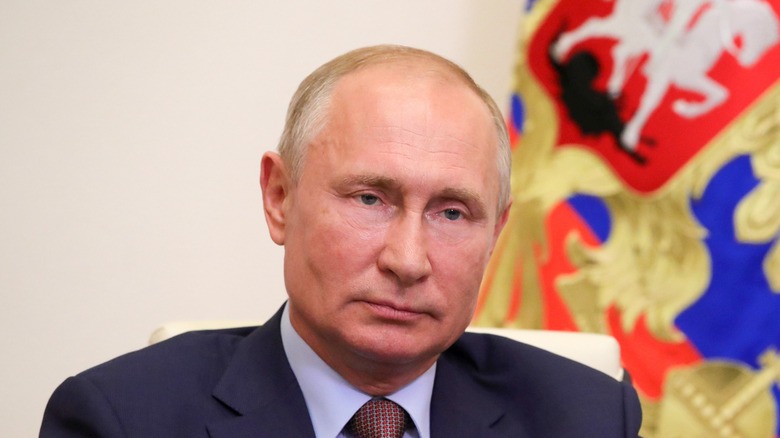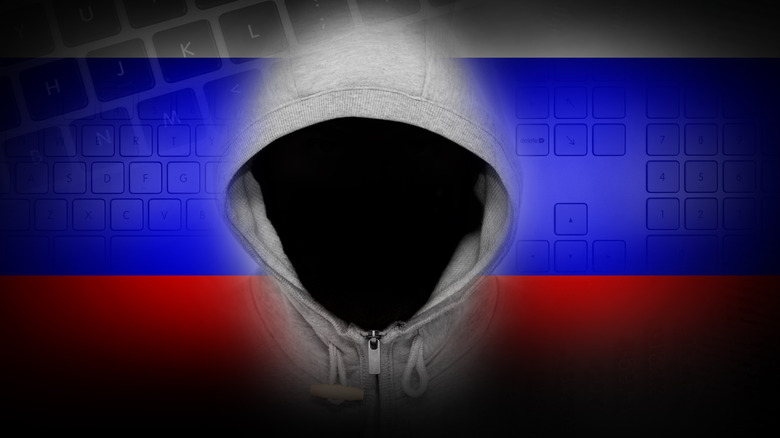The Desperate Way Russia Is Trying To Get Around Tech Bans
In the aftermath of its invasion of Ukraine, Russia has been hit with a barrage of international sanctions in an effort to put pressure on its economy. Outside of these government-induced sanctions and restrictions, the entertainment industry has also put their foot down in response to Russia's invasion of Ukraine. "The Batman," the biggest Hollywood blockbuster of the year so far, did not premiere in Russia due to the ongoing conflict. In the wake of these moves from the entertainment industry, Ukrainian government officials have called for gaming companies to block support to Russia. This call seems to have bore fruit, as companies such as Sony, Microsoft, EA, and Ubisoft among others have recently suspended all shipments and sales of their products and services to Russia (via The Verge).
Despite the ongoing sanctions and pressure from multiple industries around the world, it doesn't seem like Russia will be retreating any time soon. And with so many entertainment and independent companies withdrawing any kind of supply or support for the region during its war with the Ukraine, Russia may very well implementing — or otherwise suspending — certain laws in a desperate attempt to circumvent these limitations. This is especially true when it comes to tech and software, including video games.
Russia may legalize piracy to combat recent tech bans
In order to get around the sanctions in place from tech companies, it appears that Russia can institute new laws that would essentially legalize online software piracy in lieu of ending its conflict. This kind of change is documented in the "Priority Action Plan for Ensuring the Development of the Russian Economy in the Conditions of External Sanctions Pressure" from the Ministry of Economic Development of Russia (as reported by TorrentFreak).
Within the document for this proposal is point 6.7.3, which would constitute the "[c]ancellation of liability for the use of software (SW) unlicensed in the Russian Federation, owned by a copyright holder from countries that have supported the sanctions," essentially meaning that Russian citizens pirating unauthorized foreign products would become unpunishable during the existence of foreign sanctions, both civilly and criminally.
The primary reason for instituting this policy would be to grant Russian business owners access to technology made by tech giants like Oracle and Microsoft, though video games would also be covered under the policy by proxy (via PC Gamer). It remains to be seen if this law will actually pass, but its very suggestion seems to be a sign of desperation as many games and other media are no longer making their way to Russia for the foreseeable future.


